Harnessing the
Power of Medicinal Mushrooms for Multiple Sclerosis & Autoimmunity
Plus: Viral Illness and MS




Truth be told, MS is difficult and it can be challenging to feel better. It’s a tough diagnosis but living well with the disease is possible I used to not be able to walk Today, I’m thriving and my MS hasn’t progressed in over a decade My sincere hope is that by sharing my personal protocol, it will be helpful for those who are struggling with their own autoimmune disorder.
The first step toward autoimmune health is to lower inflammation and elevated blood sugar levels. Diet is key. I took an IGG test to see how I needed to alter my diet for optimum health (this can be done online or via a naturopath) I eat a gluten-free, low sugar diet with very few to no processed foods. I also avoid consuming excessive salt as it contributes to inflammation and multiple sclerosis flares 3,4,5 For myself, an anti-inflammatory diet alternated with a paleo-ketogenic diet and paired with intermittent fasting is ideal The Wahls Protocol is an excellent dietary plan to follow.
I have also taken steps to address leaky gut This is a condition where gaps in the intestinal wall form and allow toxins and microbes to pass through into the bloodstream, whereas normally they would be discarded as waste It leads to significant inflammation, which in turn aggravates autoimmune disorders and other health issues. I have found medicinal mushrooms, plantain, marshmallow, and slippery elm particularly helpful for healing leaky gut
Additionally, there are several outstanding natural remedies for calming autoimmunity that help to balance an overstimulated immune system and relieve chronic inflammation, which is
associated with the onset of many autoimmune disorders Because of this, adaptogenic, anti-inflammatory, and immunomodulatory herbs are especially helpful for autoimmune issues.
Several medicinal mushrooms are well-known for their time-tested immunomodulatory and anti-inflammatory properties, including lion’s mane, reishi, turkey tail, and cordyceps. Personally, I take these tinctures everyday to manage my MS These mushrooms have the added benefit of being antiviral, protecting you from illness. You can read more about why this is important for autoimmunity in the antiviral support section
I strongly believe these mushroom extracts play a pivotal role in keeping me healthy with MS and there is plenty of research to back me up They also do so without the extreme side effects of pharmaceutical drugs
Keep in mind that medicinal mushrooms require dual-extraction to access all of the medicinal compounds; a tea is not enough Suggested dosage: 2 dropperfuls of each individual tincture once daily. I take all four of these mushroom tinctures together every morning.
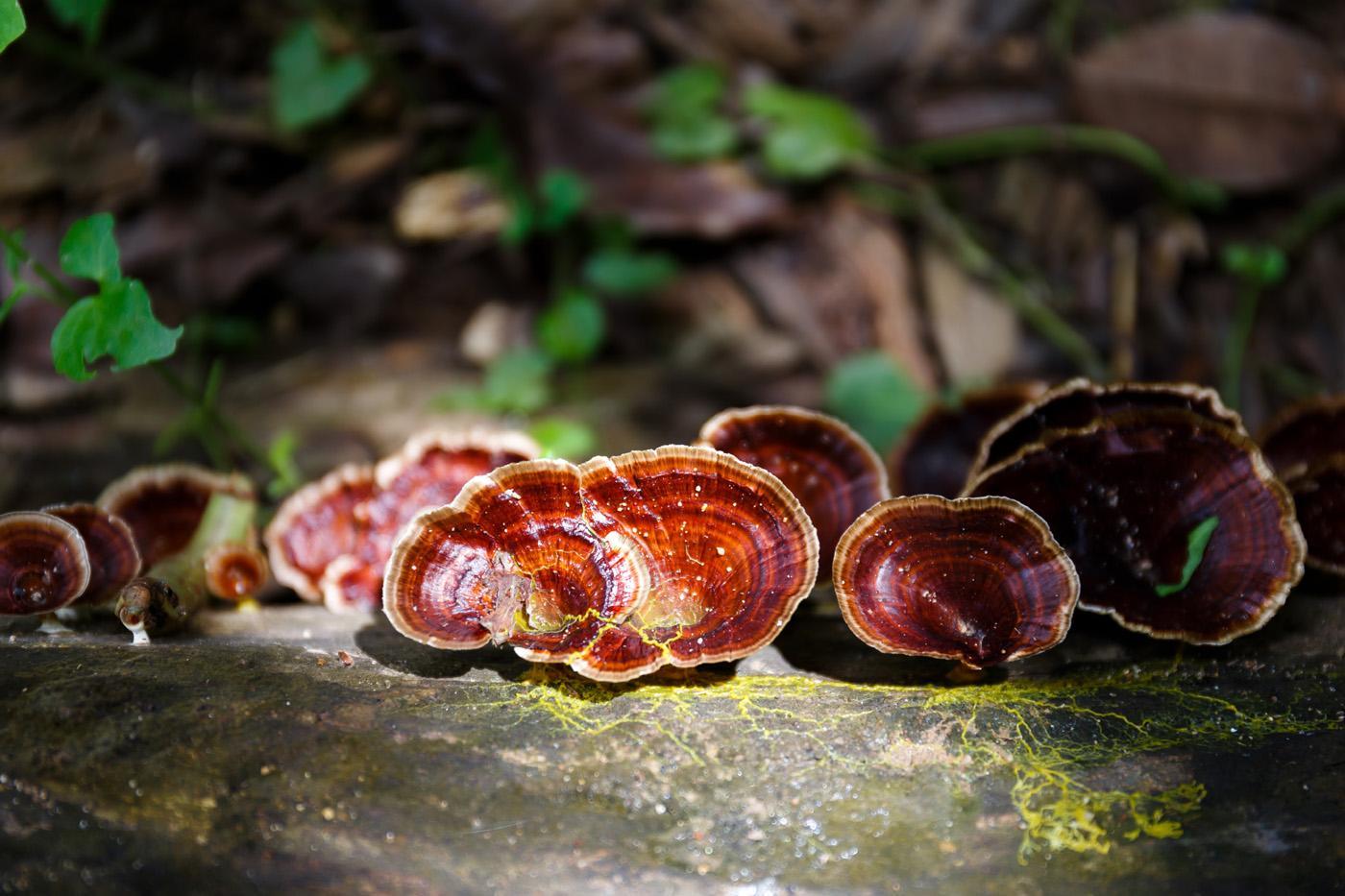
Reishi mushroom is an outstanding adaptogenic herb that strengthens the body against the negative effects of stress such as increased inflammation, hormonal imbalance, high cortisol, and fatigue. This is particularly important if you have MS because stress can cause a flare. Reishi also encourages rejuvenating sleep, promotes adrenal health, and supports a healthy immune response Moreover, it is neuroprotective, calms allergies, and is antiviral
● Immunomodulatory Effect
● Inflammation
● Neuro-protection
● Fatigue
● Cognition
● Seizures and Convulsions
● Antiviral
Safety: Reishi mushrooms are safe, however it is possible to ingest too much Use reishi mushrooms from a reputable source or consult an expert Think about avoiding reishi mushrooms if you are pregnant or breastfeeding, since there is no information on their safety. Consult a doctor before using reishi mushrooms if you have a bleeding disorder Do not use it before surgery, as reishi is a vasodilator.
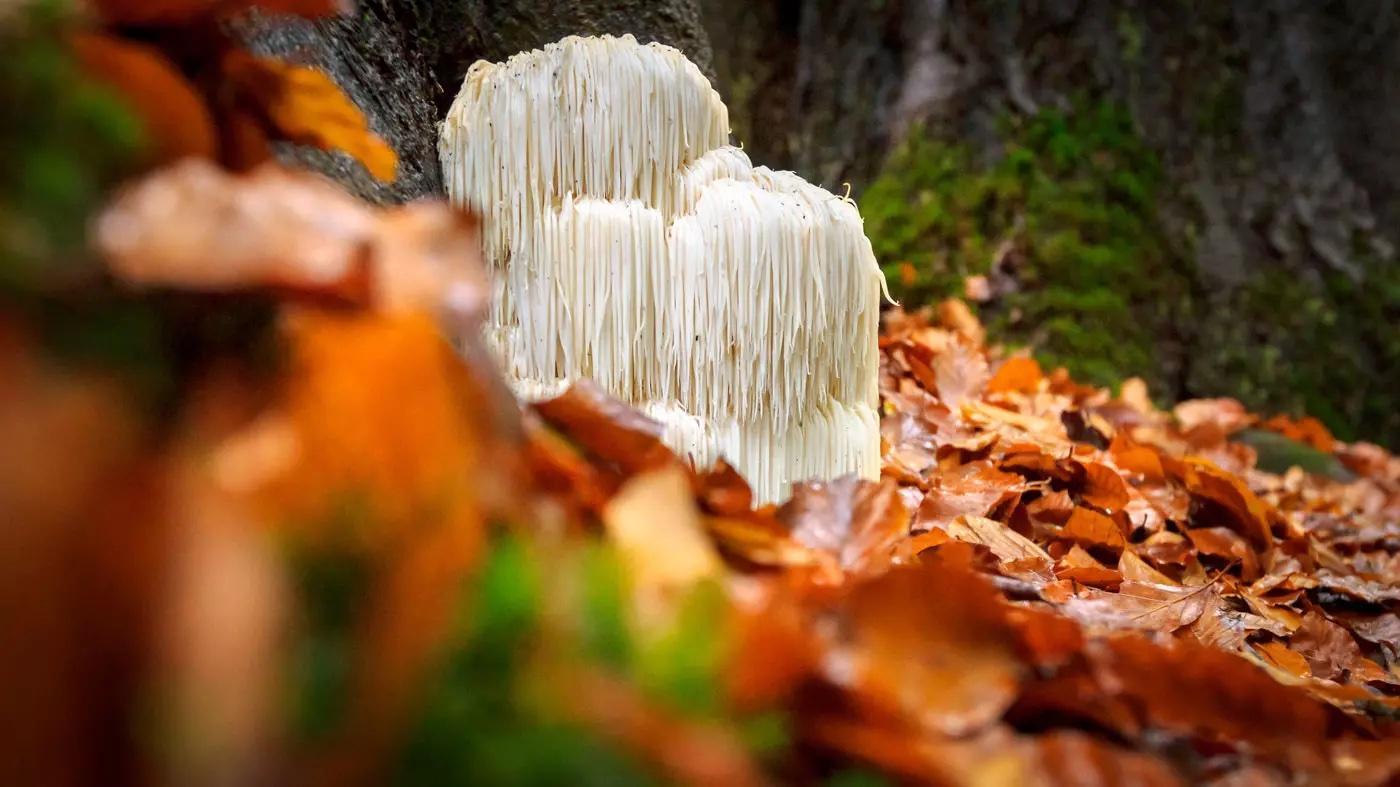
Lion's mane mushroom is another impressive herbal medicine for managing multiple sclerosis as it fortifies the nervous system and addresses gut inflammation It also helps to encourage Nerve Growth Factor (NGF), which is necessary for the repair of the protective, fatty coating surrounding nerve fibers known as the myelin sheath. For those with MS, the myelin sheath is often severely damaged This protein maintains the neurons that are involved in learning, memory, and focus Research has established that lion's mane also improves cognitive function
● Immunomodulatory Effect
● Inflammation (including gut inflammation)
● Neuro-protection
● Nervous System Recovery: Myelin regenesis (in vitro) and stimulation of NGF (Nerve Growth Factor)
● Cognition
● Calms stress, anxiety, and depression
● Boosts energy and relieves fatigue
● Antioxidant
Safety: Some people are allergic to mushrooms and thus should avoid lion’s mane mushrooms as well Symptoms of allergies can include skin rashes and difficulty breathing or even anaphylactic shock. If you have any burning, itching, swollen lips, or breathing difficulties, consult a doctor immediately
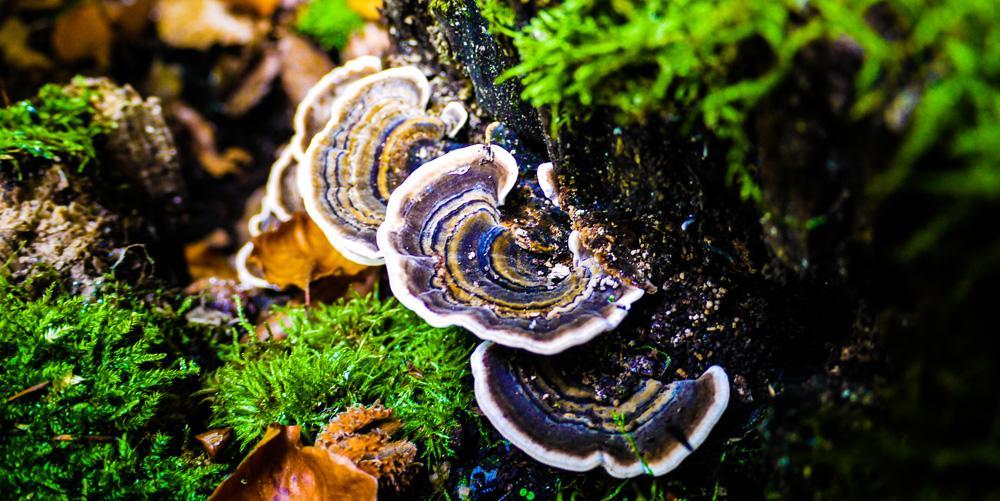
Another anti-inflammatory medicinal mushroom is turkey tail. It also helps to modulate the immune system so that it is not over or under active, making it an excellent herbal remedy for managing autoimmunity Turkey tail is exceptional for healing leaky gut, chronic fatigue syndrome, and treats a range of bacterial and viral infections as well. What's more, this impressive mushroom is also an outstanding prebiotic, combats candida, and addresses small intestinal bacterial overgrowth (SIBO)
● Immunomodulatory Effect
● Inflammation
● Prebiotic
● Antiviral and UTIs
● Cognition (learning and memory)
Safety: Turkey Tail mushrooms are considered to be very safe. There are no known negative side effects but it is always a good idea to consult with a medical professional
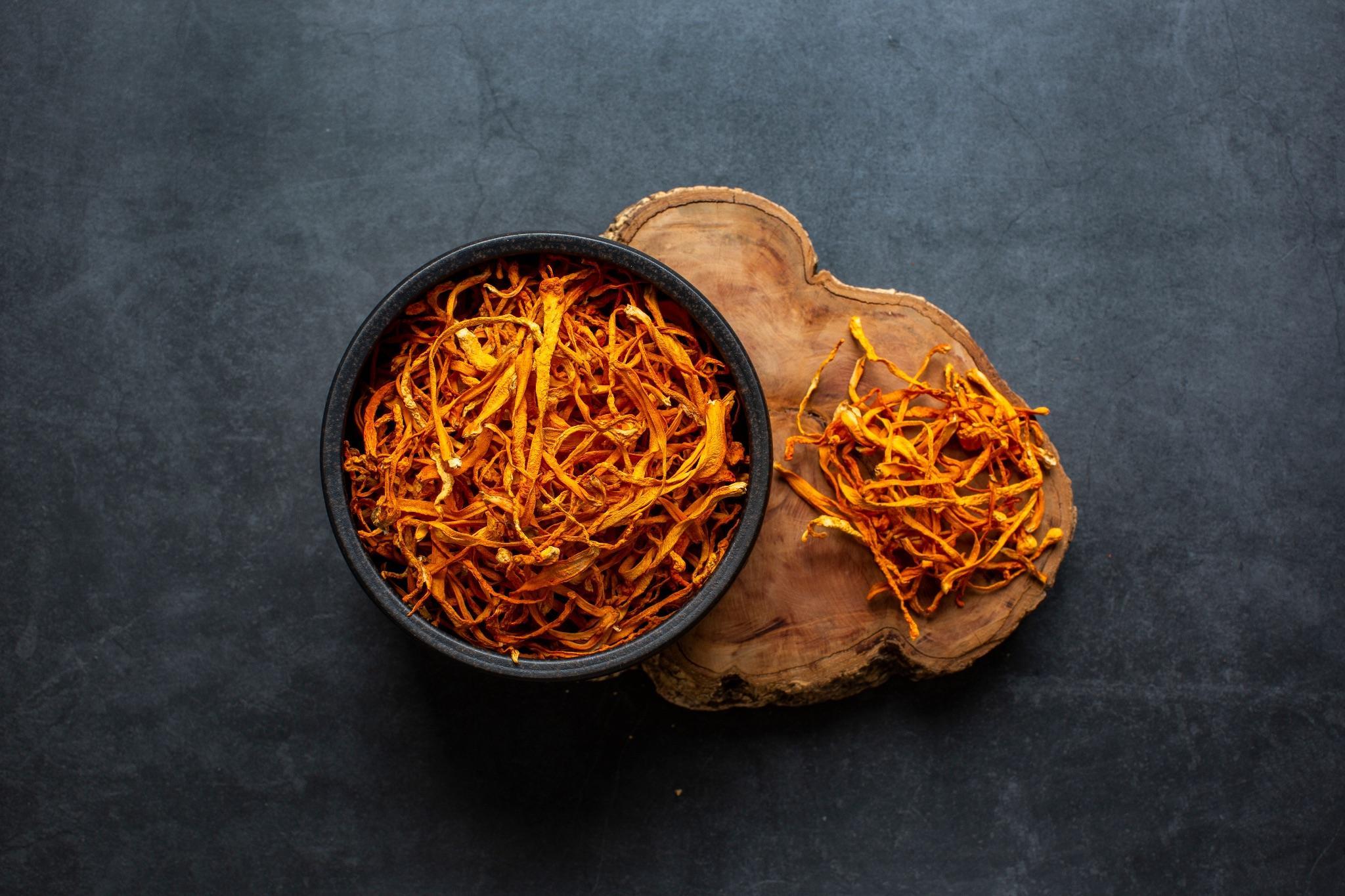
Additionally, I use a cordyceps extract everyday to manage my MS Similar to reishi, cordyceps has been used in Traditional Chinese Medicine for centuries It is known to have neuroprotective properties that reduce neuronal cell death an important consideration for those with MS. This unique mushroom is anti-inflammatory and helps to improve energy It is also antimicrobial, antibacterial, antiviral, antifungal, and antiprotozoal, which is helpful for addressing poor gut health Cordyceps is anti-cancer and regulates blood sugar as well
● Immunomodulatory Effect
● Inflammation
● Cognition
● Memory
● Neuro-protection and Neuro-inflammation
● Antiviral
Safety: Generally considered safe, do not use Cordyceps if pregnant or breast-feeding, or have a bleeding disorder like hemophilia, or sickle cell diseases Cordyceps is a vasodilator, avoid using two weeks before a scheduled surgery.

Warm over medium heat 6 oz unsweetened non-dairy milk, 2 oz water, 1 teaspoon coconut oil, and 1/2 tsp almond extract Remove from heat and transfer to a blender Add 1 dropper full Cordyceps extract or 1/2 teaspoon powder, 1/4 teaspoon powdered monk fruit or other sweetener of choice, and 1/8 teaspoon ground nutmeg Blend for 15 seconds then enjoy
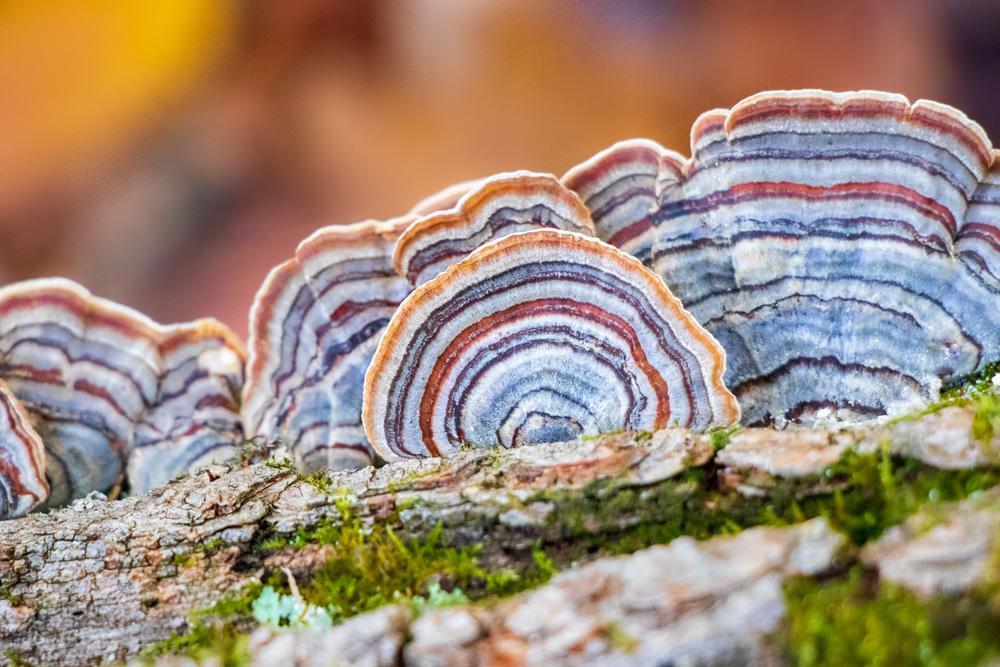
Many are unaware of the difference between mushroom products that use mycelium compared to those who utilize the higher quality fruiting body. It can be confusing for consumers to distinguish between the two. Here’s why fruiting body mushroom extracts are superior.
Mycelium vs Fruiting Bodies
Mycelium are the roots of the mushroom. A good analogy is that mycelium is to mushrooms what roots are to trees Commercially, mycelium is usually grown on grain, mainly rice or oats If grown to full size, they will form a complete fruiting body, which is what we normally associate with a mushroom: the stem, cap, and gills. Namely, everything that grows above the bed of grain, bark, or fallen log The fruiting body contains the majority of nutrients and bioactive compounds like vitamins A, B, C, and D, zinc, and β-Glucans.
To speed production and to save money, US mushroom supplement producers will often harvest the mycelium before it has formed a fruiting body. It is then ground together with the grain substrate The end product isn’t considered a mushroom at all and contains little, if any, beneficial compounds According to FDA Section 585 525: Mushroom Mycelium – Fitness for Food; Labeling:
Any food in which mushroom mycelium is used should be labeled to state that fact Labeling should not suggest or imply that the food contains mushrooms .
Many times, supplement manufacturers will use the Latin name of the fungi on the label without distinguishing whether it is mycelium or the fruiting body. Grain will often be listed as “Other Ingredient” Most consumers are unaware that the supplement they are taking isn’t truly a mushroom but a lesser grade mycelium product. It’s important to know the difference.
The mushroom fruiting body is “full spectrum” as it contains most of the vitamins and minerals of the fungi, including:
● Vitamins A, B, C, and D
● Phosphorous
● Copper
● Zinc
● Potassium
The active beneficial compounds found in medicinal mushroom fruiting bodies include:
● β-Glucans Antibiotic and antiviral properties, supports immunity.
● Triterpenoids Antioxidant, anti-inflammatory, reduces lipids in the bloodstream, protects the liver, curbs histamine release
● Ergosterol Antitumor, antioxidant, a precursor to Vitamin D2
● Statins Can lower cholesterol in significant enough doses
In light of this, it is crucial to source medicinal mushroom extracts that utilize the whole fruiting mushroom body, not the mycelium, for full potency and effectiveness Dual extraction in both alcohol and water are also essential
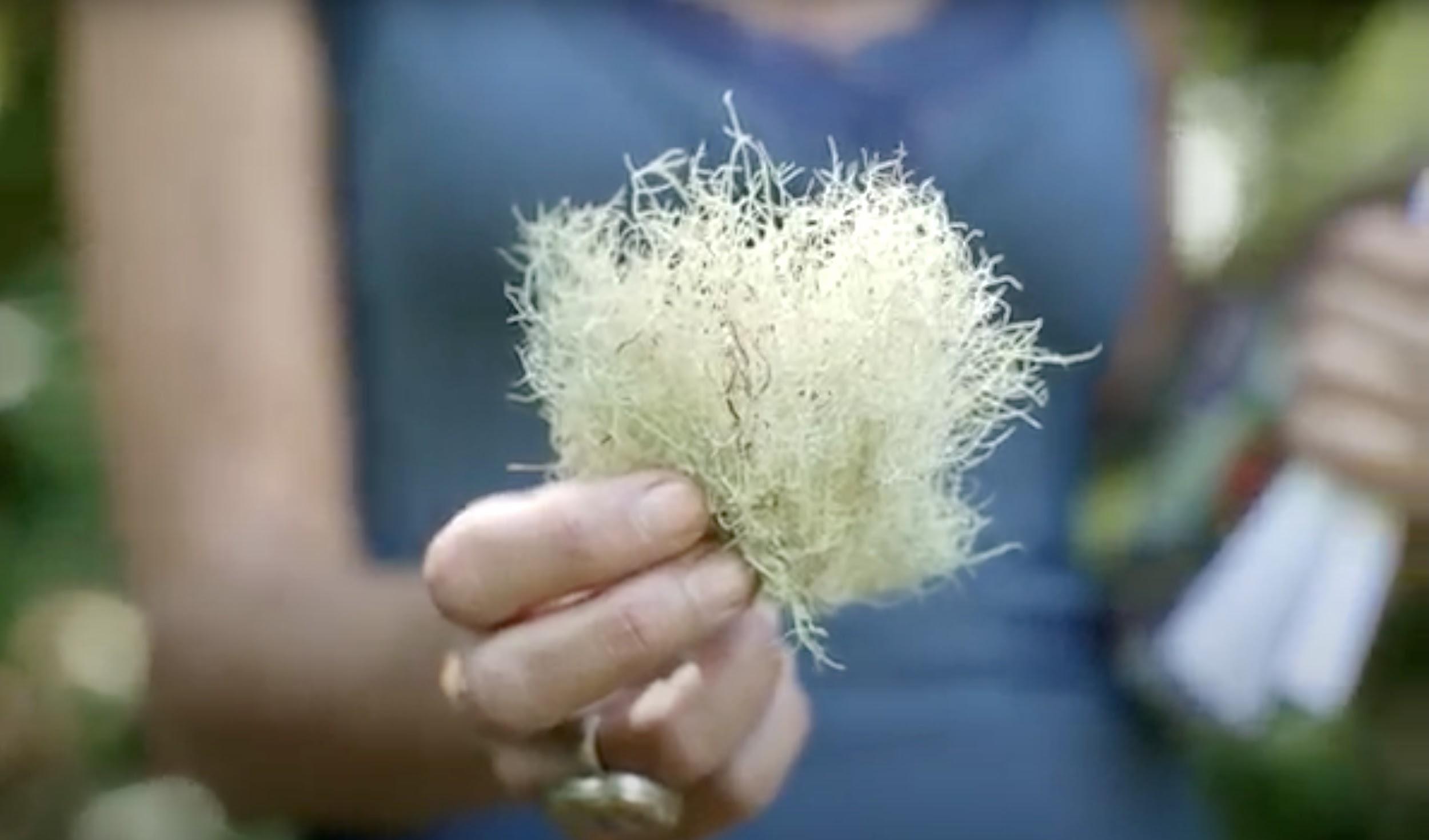
Throughout my journey with MS, I have found that it is extremely important to avoid becoming sick with contagious illness as much as possible. Not only does this protect against triggering a flare, but research has shown that viral illness is also associated with the development of multiple sclerosis.
A new study has found that a past viral infection with Epstein-Barr (EBV), a type of herpes virus, is strongly linked with the development of multiple sclerosis. It is a stunning discovery with important implications not only for MS patients, but also for those suffering from other autoimmune conditions
The same virus that causes mononucleosis, EBV was the focus of a decade-long study involving 62 million samples from over 10 million active and reserve duty members that were stored at the Walter Reed Army Institute of Research in Silver Spring, MD.1 Since a large majority of the population has been exposed to the Epstein-Barr virus in childhood or during their teenage years, the ramifications of these findings are significant.
Once the team analyzed the samples, they discovered that an infection with EBV increased the chances of developing MS by more than 32-fold.
“‘Our data strongly suggest Epstein-Barr virus is the leading cause of multiple sclerosis,” said Kjetil Bjornevik, a research scientist at Harvard and the study’s lead author. “It was a really dramatic increase in risk that would be very hard to explain any other way.”’
The researchers not only looked for the virus or antibodies, but also searched for what is called neurofilament light chain (NfL). When neurons are attacked, they shed these filaments and some migrate to the cerebrospinal fluid, then into the bloodstream The rise in NfL levels is typically detected several years before the onset of MS.
The study found that this uptick in neurodegeneration didn’t happen until after an active EBV infection The team stresses this point because it shows that MS doesn’t compromise the immune system so that the Epstein-Barr virus can flourish. The infection came first.
Michael Wilson, a neurologist at the University of California, San Francisco who focuses on neuroinflammatory disorders said there are many factors involved in MS Certain inherited genes are involved, as are low serum vitamin D levels and environmental factors.2 But when these aspects are combined with an EBV infection, it may just create a perfect storm for MS to develop.
The results of the study offer a compelling reason to find ways to help avoid active EBV infections and reduce the damage of viral illness, especially since the virus has been linked to a range of cancers as well as other autoimmune conditions like lupus.
Needless to say, these findings are a significant piece of the puzzle concerning autoimmune disorders and emphasize the importance of supporting balanced immunity while protecting against viral illness. For myself, Elderberry, Usnea, and my All-Purpose Salve have been exceedingly helpful in this regard, along with Reishi, Turkey Tail, Cordyceps, and our Eastern Blend formulation. You may find these in my apothecary: https://nicolesapothecary.com/
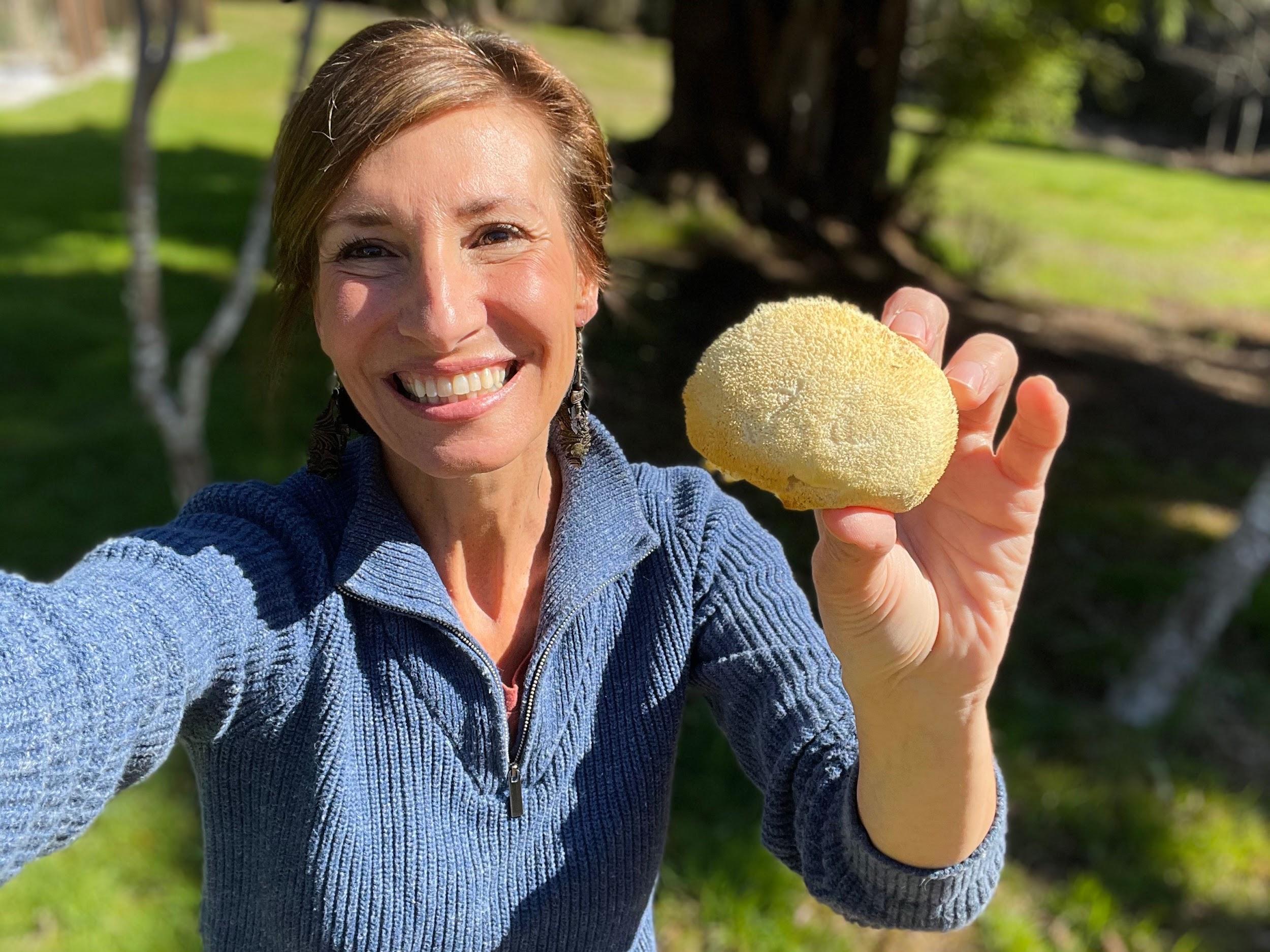
To wrap up, my favorite diet for managing multiple sclerosis is gluten-free, anti-inflammatory, and sometimes ketogenic. I also practice intermittent fasting to calm inflammation. I protect my nervous system I take reishi, lion's mane, turkey tail, and cordyceps mushrooms everyday I find this helps to mitigate my stress response, decrease inflammation, boost energy, and improve cognitive function. I use these herbal remedies to help avoid becoming sick with contagious illness And several natural botanicals have healed my leaky gut
I hope you have found this information helpful and that it has been a useful introduction to the power of medicinal mushrooms and other natural remedies for addressing multiple sclerosis and viral illness
Wishing you the very best on your journey to wellness!

Please note that the contents of this book are for informational purposes only, do not constitute medical advice, and are not intended to be a substitute for diagnosis or treatment Always seek the advice of a qualified health provider with any questions you may have regarding a medical condition Never disregard professional medical advice or delay in seeking it because of something you have read on this website In the event of a medical emergency, call a doctor or 911 immediately. Reliance on any information provided by this website is solely at your own risk.

Dr Nicole Apelian is an herbalist, a mother, a survival skills instructor, an anthropologist, and a biologist. She has B.S and M.S. degrees in Biology from McGill University in Canada and the University of Oregon. She earned her Doctorate through Prescott College while working as an anthropologist and ethnobotanist in Botswana. She has spent years living in nature with the San Bushmen of the Kalahari Desert, one of the last indigenous peoples who still live as hunter-gatherers Developing strong relationships within the tribe helped Nicole learn many of the remedies and skills she practices and teaches today and she continues her work with the San through her non-profit, “The Origins Project“
An unexpected diagnosis of multiple sclerosis in 2000 led Nicole to apply her research skills towards her own personal wellness. She focused on a healthy living strategy, including deep nature connection and gratitude practices Through changes in her lifestyle, recognizing profound mind-body linkages, and making and using her own remedies, Nicole went from bedridden to being fully alive and from surviving to thriving
She believes that there are many more people suffering who need to find their own remedy This became her life’s mission and the main reason for writing her book The Lost Book of Herbal Remedies: The Healing Power of Plant Medicine. In it she poured over 28 years of plant knowledge and her first-hand experiences of making her own poultices, tinctures, decoctions, salves, infused oils, and other herbal remedies She also recently wrote a book based solely on peer-reviewed scientific research, titled, The Holistic Guide to Wellness; Herbal Protocols for Common Ailments, that we highly recommend
In 2015 she was among the first women ever selected for the History Channel’s hit TV show “Alone”. Despite having MS, she went on to survive solo for 57 days straight in a remote area of Vancouver Island with little more than her hunting knife and the wild foods and medicines she found there
For more about Dr Nicole Apelian please visit nicoleapelian com
Nicole’s Apothecary
Books By Nicole
Connect on Instagram and Facebook
1. Bjornevik K, Munger KL, Cortese M, et al. Serum Neurofilament Light Chain Levels in Patients With Presymptomatic Multiple Sclerosis. JAMA Neurol. 2020;77(1):58–64. doi:10.1001/jamaneurol.2019.3238
2. Patsopoulos N. A. (2018). Genetics of Multiple Sclerosis: An Overview and New Directions. Cold Spring Harbor perspectives in medicine, 8(7), a028951. http://perspectivesinmedicine.cshlp.org/content/8/7/a028951.full.pdf+html
3. “Yale researchers identify salt as a trigger of autoimmune diseases” Bill Hathaway, YaleNews, March 6, 2013. https://news.yale.edu/2013/03/06/yale-researchers-identify-salt-trigger-autoimmune-diseases
4. Sumida, T., Lincoln, M.R., Ukeje, C.M. et al. Activated β-catenin in Foxp3+ regulatory T cells links inflammatory environments to autoimmunity Nat Immunol 19, 1391–1402 (2018). https://doi.org/10.1038/s41590-018-0236-6
5. Wu, C., Yosef, N., Thalhamer, T., Zhu, C., Xiao, S., Kishi, Y., Regev, A., & Kuchroo, V K. (2013). Induction of pathogenic TH17 cells by inducible salt-sensing kinase SGK1. Nature, 496(7446), 513–517. https://doi.org/10.1038/nature11984